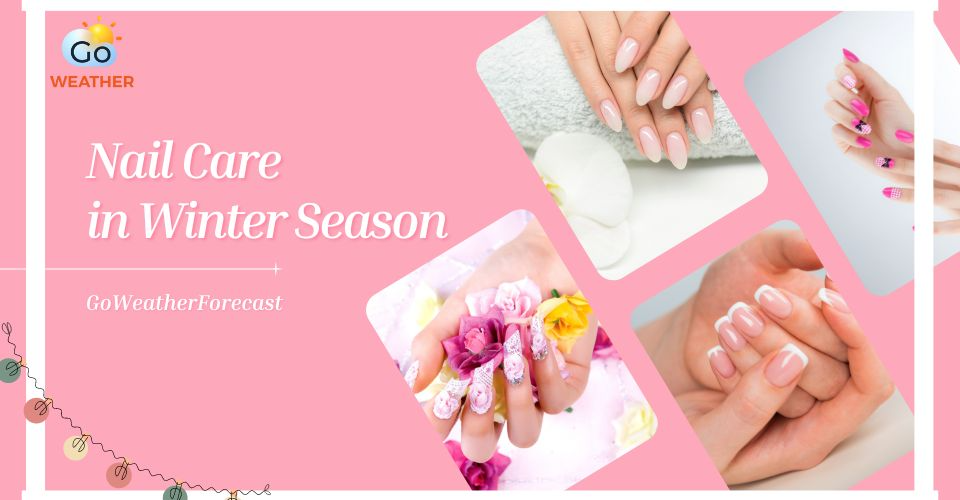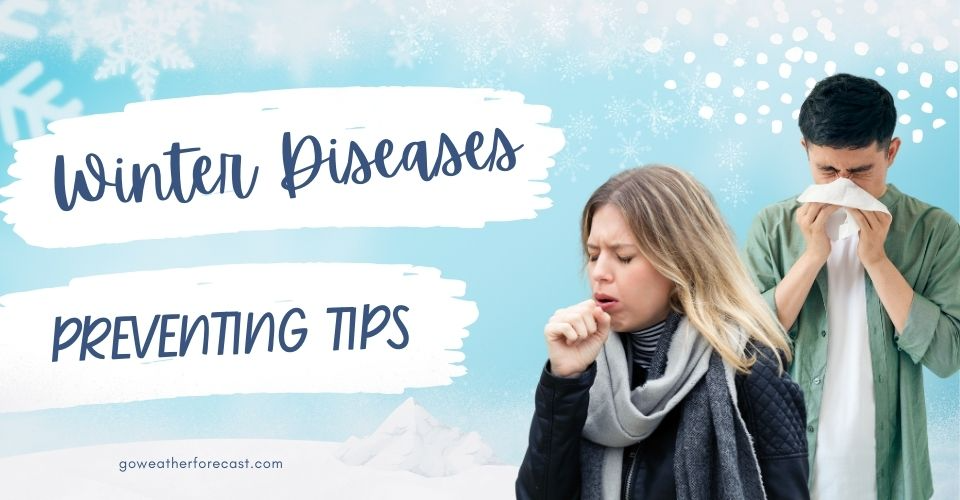Nail care in winter: Easy tips for stronger nails in cold weather
“How to take care of my nails in winter?” “How can I strengthen my nails in winter?” “How do I keep my nails from breaking in winter?” and so on are common questions many of us have regarding nail care in winter. If you are also looking for the answers to these questions, this article is definitely for you. Let’s check out some practical winter nail care tips right now
How to take care of the nails in winter?
Are Nails More Brittle During Winter?
In the previous article, we shared some simple (but essential) nail care tips for summer. But can these tips be applied to the winter season? In fact, your nails require more care during winter since they are more brittle.
First, the cold air outside combined with the warmer, dry air inside can cause your skin and nails to lose a lot of moisture. The combination of icy wind, cold temperatures, and extremely dry conditions can have bad effects on the health of our nails.
In addition, frequent temperature changes, such as moving from chilly outside to warm inside, can cause your nails to expand and contract. These conditions may weaken your nails over time, causing brittleness and breaking.
.jpg)
During winter, the nails tend to get broken, chipped, or peeled more easily
Due to the cold and flu season, you may wash your hands more frequently or use extra sanitizing gel.
Excessive cleaning, particularly with hot water and harsh chemicals such as alcohol sanitizers, may harm your nails, leaving them more prone to breaking and peeling.
Finally, not getting enough nutrients in your diet during the cold season might cause your nails to break. Biotin and vitamin E deficiency and a lack of sunshine weaken your nails, leaving them more prone to cracking and peeling.
You can't spend the whole winter hiding your hands in gloves, right? Apply the following winter nail tips that you can follow to make your nails healthier and stronger.
Nail Care in Winter
Extreme weather conditions produce an environment that wicks moisture away. They may make your nails and skin even more parched than in the summer. Use these methods to keep your nails healthy!
.jpg)
Tips for nail care during winter
Look after the cuticles
The health of your nails depends heavily on your cuticles. Caring for them should be a process undertaken at all times, particularly when winter comes. Apply lotion or cuticle oil daily and massage to keep them hydrated and healthy.
This will help prevent the skin around your nails from splitting or cracking. Also, no matter the weather, remember never to cut your cuticles, as this can result in inflammation and infections.
Moisturize your nails
If you've read the previous article on nail care tips for summer, you might find this tip familiar. We need to keep our nails hydrated in summer, and this is much more important in winter.
Like winter skin care tips, moisturizing is the key to keeping the nails and skin healthy. In addition to daily cuticle care with lotion or cuticle oil, you should also apply moisturizer to your hands, fingers, and, of course, your nails.
.jpg)
Don’t forget to keep your nails hydrated
Look for nail moisturizers that contain shea butter, coconut oil, or vitamin E to minimize nail breaking.
If your nails are damaged, dry, or brittle, nourishing them every morning and night will help to mend them. Maintaining this behavior throughout the year will result in less damage next winter.
Opt for shorter nails
As the cold, dry winter makes nails more brittle and increases the chances of breaking, it's a good idea to keep them shorter (not too short) to avoid snags and breaks. What’s more, long nails can snag or break easily on warm, fuzzy gloves, sweaters, or scarves.
Natural nail files, such as 240 grit or crystal nail files, can help minimize snagging and shape nails while avoiding further damage.
Keep your nails short and well-groomed
Wear gloves
The next tip for nail care in winter is to wear gloves. It is one of the easiest ways to protect your hands from the bitter cold.
When exposed to the cold, nails become dried out and more brittle. A nice pair of gloves not only keeps your hands warm but also protects your nails from harsh weather.
Besides, remember to wear rubber gloves when doing household chores like cleaning or washing up. This will also protect your nails because too much exposure to water can badly affect them. Wearing gloves is even more crucial when you clean or wash up using chemicals like chlorine, alcohol-based sanitizers, etc.
.jpg)
Protect your nails during winter with gloves
Limit manicures
As much as we all like a nice manicure and a vibrant pair of long nails, your nails may require a break. Most nail polish, including gel polish, requires UV light to cure the chemicals and set the polish.
The process might irritate your nails, causing them to weaken, chip, and become brittle.
While a skilled manicurist can tell when your nails are due for a break, checking your hands and nails is always advisable. If your nails are damaged and peeling, give them a more natural look for a few weeks, and then use a basic nail strengthener.
Don't worry! You may still have elegant winter nails without using your regular, vibrant polish.
.jpg)
Minimize manicures
Use supplements
Just as you should take vitamins and supplements for your body, skin, and hair, these supplements can benefit your nail health. Omega 3, 6, and 9 are the finest supplements for brittle winter nails.
Omega fatty acids are anti-inflammatory, decreasing inflammation in the nail bed. These fatty acids also moisturize the nail, making it less brittle. Moreover, they are required for nail growth and can help you get longer, stronger, and healthier nails.
► Read more: Oily hair care in summer
Do Nails Grow Slower During Winter?
.jpg)
Your nails may grow slower in the winter
Not everyone will notice slower nail growth in the winter. However, a few factors may have an indirect effect on nail development.
The cold winter weather contracts the blood vessels in your hands and feet, limiting blood flow and circulation to your fingers and toes. Blood circulation transports vital nutrients and oxygen to the fingertips and toes, which is necessary for nail development.
As a result, lower circulation may inhibit nail development slightly, though you may not feel a difference.
A well-balanced diet rich in vitamins and minerals is also necessary for healthy nail development. Yet, throughout the winter, we tend to be lazy with our diets and gravitate toward comfort foods.
Sometimes, you can't receive all your vitamins and minerals from your food, so taking supplements is always beneficial while trying to keep your nails healthy.
Roundup
Above are basic tips that we want to share with you via this post, “Nail care in winter.” As we introduced right at the start of this writing, all of these tips are easy and simple to follow. We hope you found them useful.
.jpg)











0 Comments
Leave a Comment
Your email address will not be published. Required fields are marked *